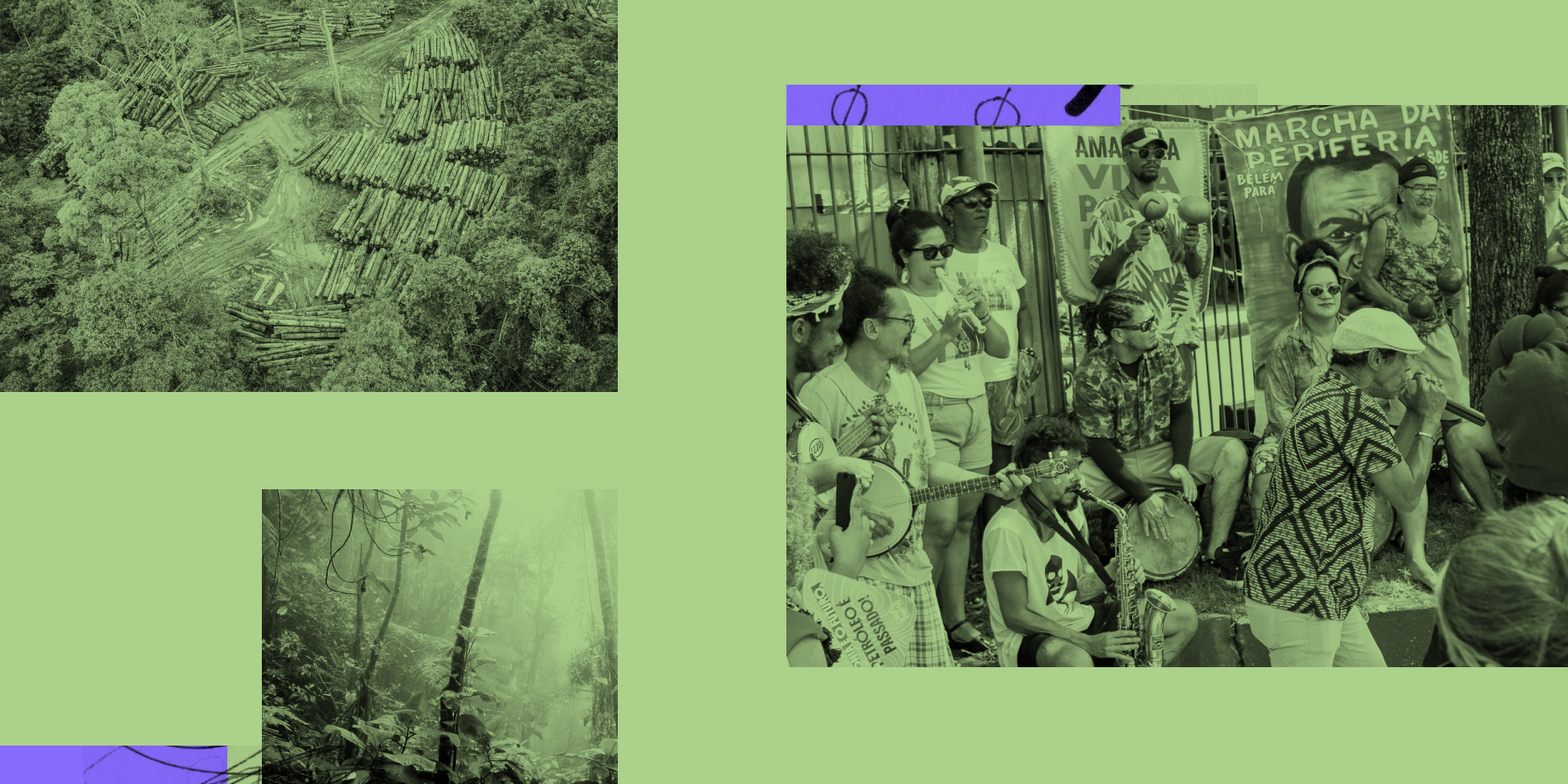COP30: Confronting the climate crisis from Brazil
High temperatures in the host city of Belem, Brazil, highlight what’s at stake for climate action.

High temperatures in the host city of Belem, Brazil, highlight what’s at stake for climate action.
In Brazil, Belem is on track to become the second-hottest city on the planet by 2050, making it a fitting location for the world’s largest annual climate gathering: Conference of the Parties, better known as COP30. Perched at the mouth of the Amazon River, Belem and its surrounding region have borne witness to soaring temperatures, rising air and water pollution, and many other downstream effects of environmental degradation. Nevertheless, for much of November, it became the destination for government delegations, industry leaders, climate scientists, and activists from around the world who gathered at COP to discuss the issues at hand.
This blog post was adapted from the November 2025 edition of our monthly newsletter. Subscribe to the Checklist today.
Nearly half of Belem’s residents live in informal housing on the city’s periphery, where paved roads are rare and most households lack clean tap water. Our partners at the newsroom Agência Mural are dedicated to reporting about informal housing communities on the outskirts of Sao Paulo, and they were hard at work in Belem, highlighting the experiences of people living at the forefront of the climate crisis. As part of a pop-up newsroom dedicated to COP30, Agência Mural reported on issues ranging from community-led recycling efforts and the harms of waste incineration to the importance of increasing plant coverage for the improvement of air quality in outlying communities.
Our friends at Sao Paulo-based Coding Rights, a feminist tech activist group, made waves at COP30 too. They joined panels on the environmental harms of Big Tech and the risks of techno-solutionist approaches to fighting climate change. Coding Rights also celebrated the recent launch of Tramas, a series of action-research projects that aim to untangle the complicated knots tying together AI development, the expansion of digital infrastructure, and socioenvironmental conflicts in Latin America.
The issue of climate-related misinformation was also high on the agenda at COP30. Several of our partners from the region joined an open letter drafted by Climate Action Against Disinformation, which called on negotiators to recognize that “upholding information integrity on climate change is a prerequisite for effective climate action.” Signed by hundreds of organizations and individuals — including heavy-hitters like 350.org, Greenpeace Brasil, Transparency International, and the World Wildlife Fund — the letter underscored the real-world damage incurred by climate disinformation and “climate obstruction activities,” charging that such narratives are “actively delaying the human response to the crisis, directly sabotaging international cooperation, making the Paris Agreement goals unattainable, and putting the lives of millions at risk.”
Just last month, we highlighted new work from our friends at Nawaat. Since our previous edition, the independent Tunisian journalism group has been compelled by authorities to halt operations for one month. In an official statement, Nawaat described the move as an “arbitrary decision” that is part of a political effort focused on “stifling all media resistance to the dictatorship.” The organization intends to comply with the suspension while launching an appeal before a judge.
The National Union of Tunisian Journalists swiftly condemned the government’s move and contextualized this decision within a broader pattern of government-directed threats against independent media. Reporting on the suspension from Reuters noted that press freedom has retreated under President Kais Saied in recent years, with activists and reporters jailed and financial pressures being exerted on nongovernmental organizations operating in the country.
We stand with Nawaat and express our deep admiration for its leaders’ perseverance in the face of persistent and unwarranted persecution.